What Happens If You Don’t Pay HOA Fines
Homeowners are bound by the community’s governing documents, which means they must follow its rules. One of an HOA member’s responsibilities is to abide by the community’s regulations and pay their dues on time. The HOA may impose a monetary fine when they fail to fulfill their obligations. However, what happens if you don’t pay HOA fines? Are there any consequences? Let’s find out.
Are Homeowners Required to Pay HOA Fines?
Homeowners can be fined for several reasons. It could be a penalty for overdue HOA fees or a charge imposed because of a rule violation. Regardless of the reason, fines exist to enforce rules and penalize the homeowner for some sort of infringement of the HOA’s guidelines and regulations. After all, homeowners are more likely to comply with the rules if a violation results in a monetary penalty.
That said, are homeowners required to pay HOA fines? In most cases, yes. HOA fines are legally enforceable, so homeowners are generally required to pay them. HOAs typically have the right to impose them to penalize homeowners for violations. Homeowners may face several consequences When they refuse to pay HOA fines.
What Happens if You Don’t Pay HOA Fines?
Fines are serious business, and non-payment can lead to severe consequences. What happens if you don’t pay an HOA fine? Here are some things the homeowners association can do if you refuse to pay a fine.
Place a Lien on the Property
What happens if you refuse to pay HOA fines? Usually, homeowners associations will notify the homeowners in writing of the violation, how to cure it, and the associated penalties. HOAs will often leave the member alone once the violation is corrected or the penalty is paid.
However, if the violation persists and the homeowner refuses to pay the fines, the HOA may send a “Notice of Lien” to the homeowner. A lien is a claim against a member’s property to collect unpaid fees. HOAs typically have an automatic lien on the home the moment the homeowner’s payments become overdue. They often do not need a court judgment.
Specific state laws reinforce this right. For example, California Civil Code Section 5675(a) states that the fees, plus collection costs, late charges, and interest, shall constitute a lien against the homeowner’s property after recordation with the county recorder’s office.
A lien can cause complications in several ways. First, homeowners may have problems refinancing their mortgages should they ever need to. Potential lenders will be less likely to cooperate with the homeowner. In addition, homeowners who want to sell the property may run into issues, too. Buyers are usually on the lookout for properties with clean titles, and a lien on the property can deter interested buyers.
Legal Action and Foreclosure
Once a lien is placed on the property, the potential for foreclosure opens up. The homeowners association can foreclose the property to collect all the unpaid charges. This means the HOA can sell the home to pay off your debt.
The foreclosure process varies significantly by state. In some states, the HOA has to file a lawsuit and initiate a judicial foreclosure to collect the money. The board has to get legal approval first, requiring them to attend hearings, file paperwork, and obtain a court order to sell the home.
However, some states allow HOAs to use a nonjudicial foreclosure process. In this case, the HOA does not have to go to court to initiate foreclosure. They will only need to comply with the process outlined in state law and the HOA’s CC&Rs. It’s a faster and more affordable process.
Can HOAs Impose Fines Without Evidence?
Homeowners associations are not allowed to fine members without cause. They only have the authority to levy fines if the resident breaks a rule. As such, the HOA is usually responsible for providing evidence of the violation. They must provide proof should the homeowner ever contest the violation.
The best kind of evidence includes documentation and photo/video evidence. If a homeowner is fined because of overdue fees, the HOA may use the homeowner’s statement as evidence. Meanwhile, if the fine is because of a rule violation, the HOA should provide photo or video evidence of the act. However, don’t underestimate the value of eyewitness statements and testimonies. They can also serve as sufficient evidence during a dispute.
Can a Homeowner Fight an HOA Fine?
If a homeowner thinks they were fined unfairly, they may fight the charges. Here is how you can do just that.
1. Review the Rules
 First and foremost, homeowners should read and understand the governing documents. This will help them determine whether their fight is justified or whether they need to pay the money.
First and foremost, homeowners should read and understand the governing documents. This will help them determine whether their fight is justified or whether they need to pay the money.
Make sure to review the rule you have allegedly violated and see whether it’s enforceable. Moreover, if the HOA has a collection policy or schedule in place, the HOA must follow it.
2. Document the Case
It’s important to gather evidence and document everything related to the case. Compile all the evidence, including emails, letters, and photographs, that can reinforce your argument. For example, if the HOA fines you for violating a driveway parking rule, it may help to get the footage from your home’s CCTV camera to prove your innocence.
3. Check for Enforcement Errors
Homeowners associations must enforce the rules uniformly. They cannot pick and choose when and who to penalize when a rule is broken. If you believe the HOA is enforcing the rule on you but not on others, gather evidence of this fact and raise the concern with the board.
In addition, HOAs may sometimes discriminate against certain individuals for specific characteristics such as race or religion. If you think the HOA’s fines are discriminatory, it may violate the Fair Housing Act.
Finally, it’s best to review specific state laws regarding restrictive covenants. Many states protect certain homeowner rights. For instance, many states prohibit HOAs from banning satellite TV dishes, solar panels, and electric vehicle charging stations.
4. Request a Variance
In some cases, governing documents will permit a variance to homeowners who don’t comply with specific rules. For instance, some municipal governments allow zoning variances to homeowners depending on their surroundings and property.
However, remember that variances are the exception and not the rule. HOAs cannot give variances simply because the homeowner wants it. There needs to be a justifiable reason.
5. File an Appeal
 After researching and preparing your plan, file an appeal with the board. This usually involves sending a letter disputing the fine to the board.
After researching and preparing your plan, file an appeal with the board. This usually involves sending a letter disputing the fine to the board.
Homeowners should compile and send the evidence along with the dispute letter. If possible, consider asking a lawyer to help you write the letter.
Is There an Alternative to Paying Fines?
Now that you know what happens if you don’t pay HOA fines, you might think: is there no alternative? What if I cannot afford to pay the penalties? In this case, homeowners may negotiate with the board and work out a payment plan. The board may extend grace and allow the member to pay the charges in installments.
What Happens if You Don’t Pay HOA Fines? Answered!
HOA fines are an essential part of rule enforcement. Homeowners associations use them to keep homeowners in check. Otherwise, rule violations would be more common, and the HOA would have no way of ensuring compliance. It’s only natural that homeowners must pay fines — and that nonpayment has consequences.
Condo Manager is a powerful HOA management software for management companies and self-managed communities. Call us today at (800) 626-1267 or contact us online to book a demo!
RELATED ARTICLES:
- HOA Social Media Account Best Practices
- Should You Hire HOA Security Guards?
- Can Homeowners Get Speeding Tickets In HOAs?

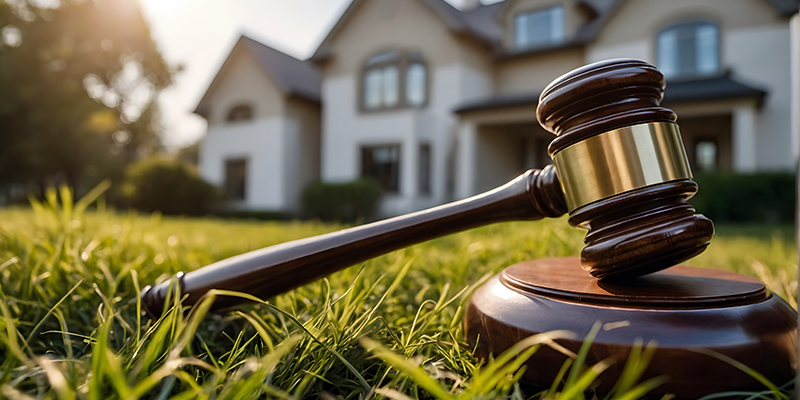

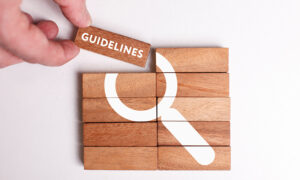 Will the social media page be public or exclusive to residents?
Will the social media page be public or exclusive to residents? Engagement is an integral part of social media. The HOA’s social media account might become useless if it isn’t engaging. What use is there to post announcements on a website nobody looks at or sees?
Engagement is an integral part of social media. The HOA’s social media account might become useless if it isn’t engaging. What use is there to post announcements on a website nobody looks at or sees?
 Access Control. Security guards may guard entry points to ensure only those authorized can enter the community.
Access Control. Security guards may guard entry points to ensure only those authorized can enter the community.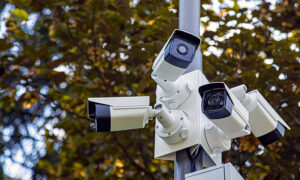 While an HOA security patrol is undoubtedly useful, it can also be costly. This is especially true for large communities with multiple entry points. However, just because a community cannot afford security guards does not mean they should give up on enhancing safety and security.
While an HOA security patrol is undoubtedly useful, it can also be costly. This is especially true for large communities with multiple entry points. However, just because a community cannot afford security guards does not mean they should give up on enhancing safety and security.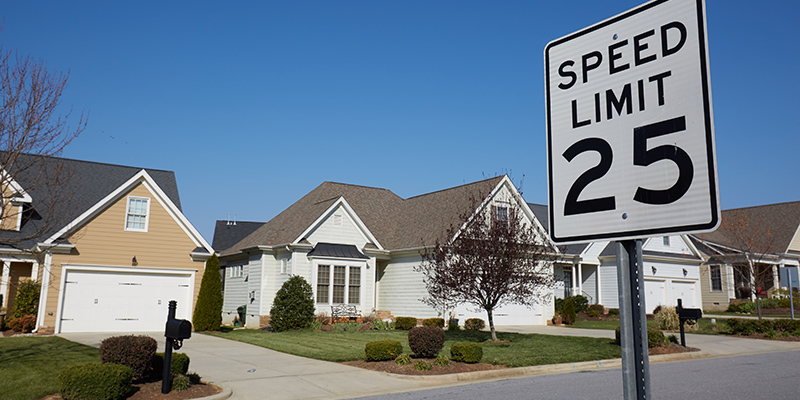
 When a resident exceeds the speed limit, the HOA will enforce the rules using the normal violation process. Associations usually send notice to the violating homeowner and issue a warning.
When a resident exceeds the speed limit, the HOA will enforce the rules using the normal violation process. Associations usually send notice to the violating homeowner and issue a warning. 3. Install Rumbles and Speed Bumps
3. Install Rumbles and Speed Bumps
 One of the largest issues with using AI HOA management software concerns data privacy. Since AI technology relies on large amounts of data to operate, homeowners may be apprehensive about giving away their information. The data could be misused or compromised and lead to stalking, identity theft, and other cybercrimes.
One of the largest issues with using AI HOA management software concerns data privacy. Since AI technology relies on large amounts of data to operate, homeowners may be apprehensive about giving away their information. The data could be misused or compromised and lead to stalking, identity theft, and other cybercrimes. 6. Lack of Transparency
6. Lack of Transparency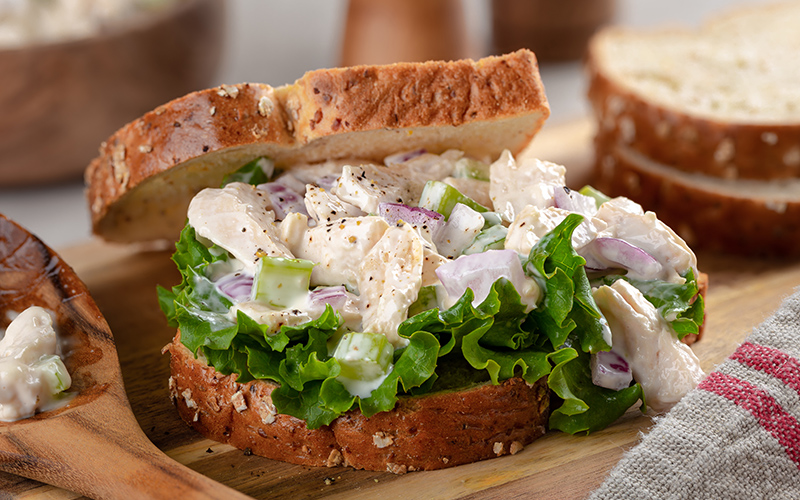
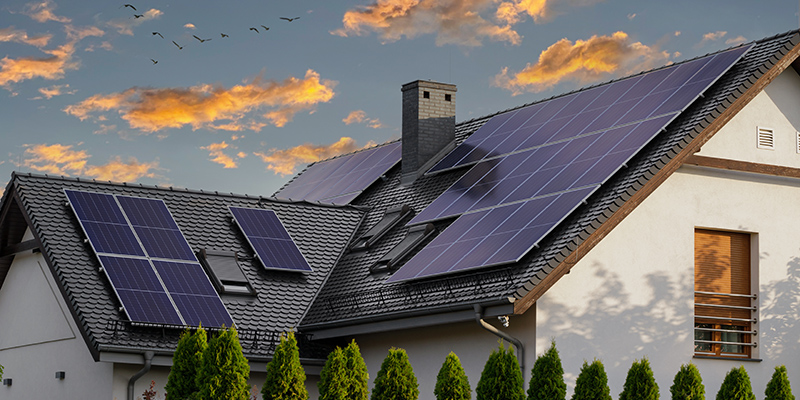
 As of the time of writing, no federal law protects homeowners’ rights to install solar panels in HOA communities. In 2009, the
As of the time of writing, no federal law protects homeowners’ rights to install solar panels in HOA communities. In 2009, the 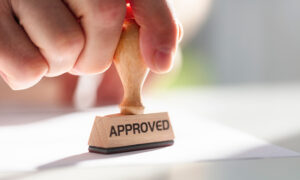 Even with state laws in place, homeowners association solar panels can still be restricted by most HOAs. As long as the restrictions are reasonable and given authority by the governing documents, the HOA can still control what homeowners can do.
Even with state laws in place, homeowners association solar panels can still be restricted by most HOAs. As long as the restrictions are reasonable and given authority by the governing documents, the HOA can still control what homeowners can do.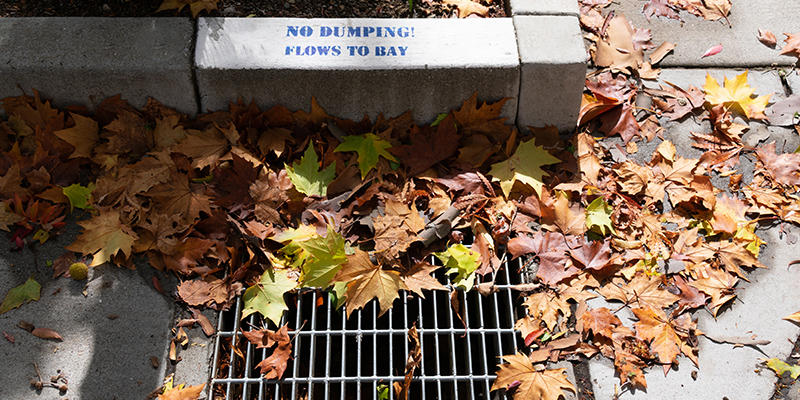
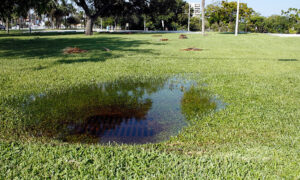 Poor drainage in HOA communities can result from something as simple as clogged drains. Remember to check the catch basins and storm drains in the HOA’s private roads. Make sure they’re unobstructed to keep the stormwater away.
Poor drainage in HOA communities can result from something as simple as clogged drains. Remember to check the catch basins and storm drains in the HOA’s private roads. Make sure they’re unobstructed to keep the stormwater away. Some HOAs may have a stormwater management system that hasn’t worked well. This is often due to the lack of maintenance and regular inspections.
Some HOAs may have a stormwater management system that hasn’t worked well. This is often due to the lack of maintenance and regular inspections.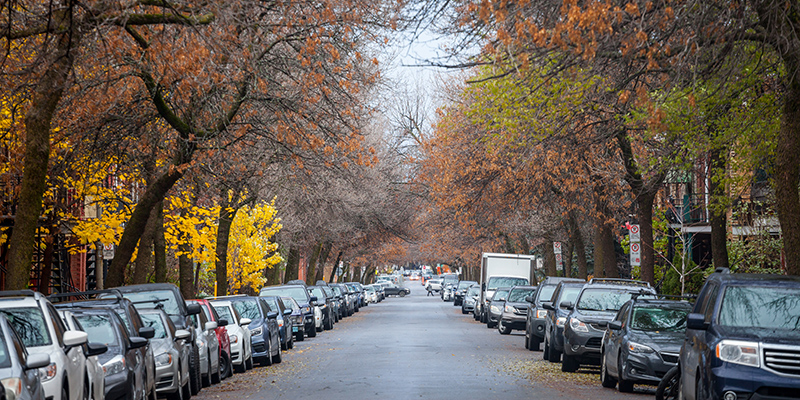
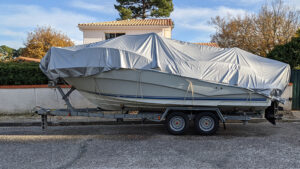 1. Permitted Vehicles
1. Permitted Vehicles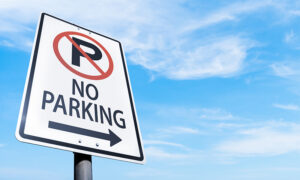 2. Post Signs
2. Post Signs Homeowners associations may tow vehicles that violate the parking rules. However, make sure this is permitted by state law and the governing documents. For example, HOAs in New Jersey might need to hire a towing company as required by the
Homeowners associations may tow vehicles that violate the parking rules. However, make sure this is permitted by state law and the governing documents. For example, HOAs in New Jersey might need to hire a towing company as required by the 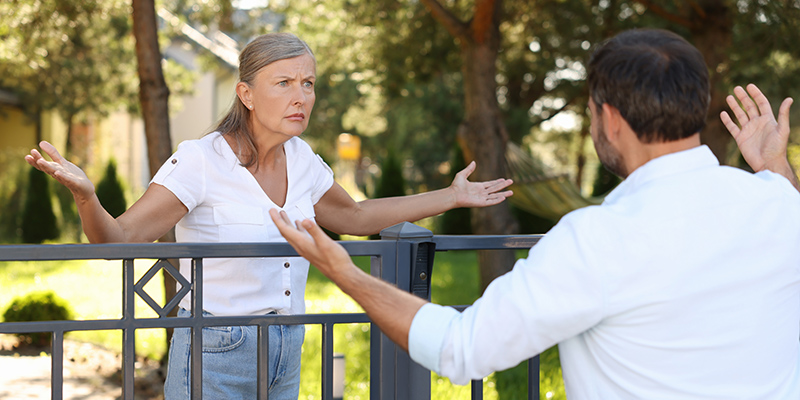
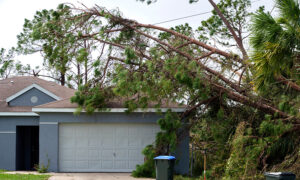 A neighbors tree can also cause damage and it can be hard to know who to hold responsible. There are many instances wherein these accidents are deemed as “Acts of God.”
A neighbors tree can also cause damage and it can be hard to know who to hold responsible. There are many instances wherein these accidents are deemed as “Acts of God.” Can I Trim a Neighbor’s Trees Overhanging My Property?
Can I Trim a Neighbor’s Trees Overhanging My Property? It’s best to talk to your neighbors to understand how much trimming would be enough. If they’re not asking for too much, and trimming doesn’t affect the tree’s health or aesthetics, it’s best to consider trimming it.
It’s best to talk to your neighbors to understand how much trimming would be enough. If they’re not asking for too much, and trimming doesn’t affect the tree’s health or aesthetics, it’s best to consider trimming it.
